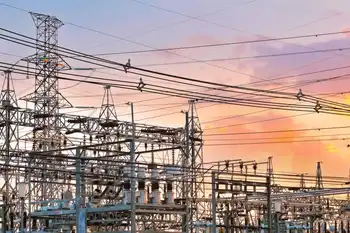Keeping the lights on in New York
By New York Post
Substation Relay Protection Training
Our customized live online or in‑person group training can be delivered to your staff at your location.

- Live Online
- 12 hours Instructor-led
- Group Training Available
The two-day power outage hit New York City especially hard, costing the five boroughs an estimated $1 billion in damages and lost revenue.
With the lights out and performances canceled, Broadway lost about $1 million. The city's 22,000 restaurants lost between $75 million and $100 million; a result of spoiled food and lost business. Drugstore chain Duane Reade reported losses nearing $3.3 million.
The blackout cost city taxpayers nearly $10 million as the fire and police departments and Consolidated Edison worked overtime to restore power to the city.
But it didn't end in 2003. In 2006, western Queens lost power for a week - the longest outage in the city's history. In June 2007, The Bronx and Manhattan's Upper East Side lost power, shutting down the subway during rush hour and causing gridlock as traffic lights went out.
And this year, the city's seen minor, local power disruptions in June, July and August. Even before the summer began, Con Ed reported a June record for electric use, the city's fourth-highest all-time peak - a whopping 12,987 megawatts of electricity. July saw another record, and the second-highest electricity use ever for a weekend in New York City and Westchester County.
For all the efforts to get Con Ed's 3.2 million customers in New York City and Westchester to conserve, the demand for electricity continues to grow. The New York Independent System Operator - the independent agency that runs the state power grid - says the Empire State will needs to add at least 2,350 MW of electricity-generation capacity by 2017.
Running close to generation or transmission capacity makes it more likely that we'll see another large blackout - with all the millions in losses for the city that entails.
The window for addressing our state's mounting energy concerns is rapidly closing. Lawmakers and utilities need to take several critical steps to ensure that our growing energy demands are met:
• Because it takes up to five years to bring a power plant online, renewing the state power-plant-siting law (Article X, which lapsed at the end of 2002) is a must. A streamlined siting process will let us develop the generation capacity needed to avoid (or reduce the severity of) power disruptions.
• New power sources aren't enough: We need efficient, reliable transmission lines, too. Our energy-transmission infra- structure requires significant investment if we're to reduce the odds for future interruptions.
• New incentives for developing renewable power sources (wind, hydro etc.) could diversify our energy mix and reduce our reliance on fossil-fuel power.
• Keeping Indian Point on-line is crucial: It provides up to 40 percent of New York City's electricity demand - critical power needed for our subways, hospitals and schools.
Five years after the 2003 blackout, George Santayana's adage - "Those who cannot learn from history are doomed to repeat it" - has never been more true.











